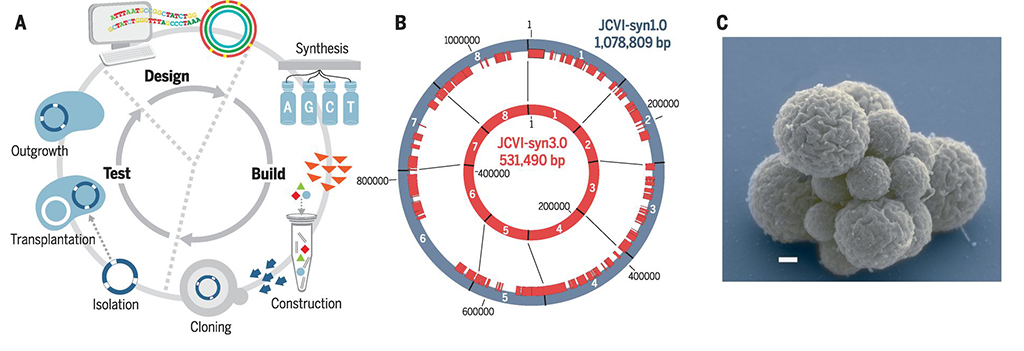Biologists Have Just Created a New Species of Bacteria With Just 437 Genes
A team of scientists led by renowned biologist Craig Venter has made a breakthrough some 20 years in the making: they've managed to create a species of bacteria in the lab with a genetic code that's smaller than any found in nature. With just 437 genes, the lab-made organism is carrying the absolute known minimum amount of genetic code required to support life.
By creating this self-replicating bacterium, scientists from the Synthetic Genomics lab and the J. Craig Venter Institute hope to get a better understanding of the function of the individual genes that make up every living organism - while we're making new discoveries all the time, there's still a lot we don't know about these vital biological building blocks.
Of the catchily named JCVI-syn3.0 microbe's 437 genes, only 149 have a known function. In other words, we know the rest are necessary for life to exist, but we haven't figured out what their purpose is yet. To help scientists find out more, what Venter and his team are now learning from this experiment is being added to a public database so anyone can study them.
"Our attempt to design and create a new species, while ultimately successful, revealed that 32 percent of the genes essential for life in this cell are of unknown function, and showed that many are highly conserved in numerous species, we must find out what are the functions of the genes and are they harmful or not. " said Venter. "All the bioinformatics studies over the past 20 years have underestimated the number of essential genes by focusing only on the known world."
The challenge now is to figure out the function of those mysterious 149 extra genes, and take the study of synthetic life further still - the researchers admit it might be possible to create a living organism with even fewer genes further down the line. "We view life as DNA software-driven," Venter said in a press statement. "And we're showing that by trying to understand that software, we're going to get better understandings of life."
His team's work has now been published in the journal Science.


No comments:
Post a Comment